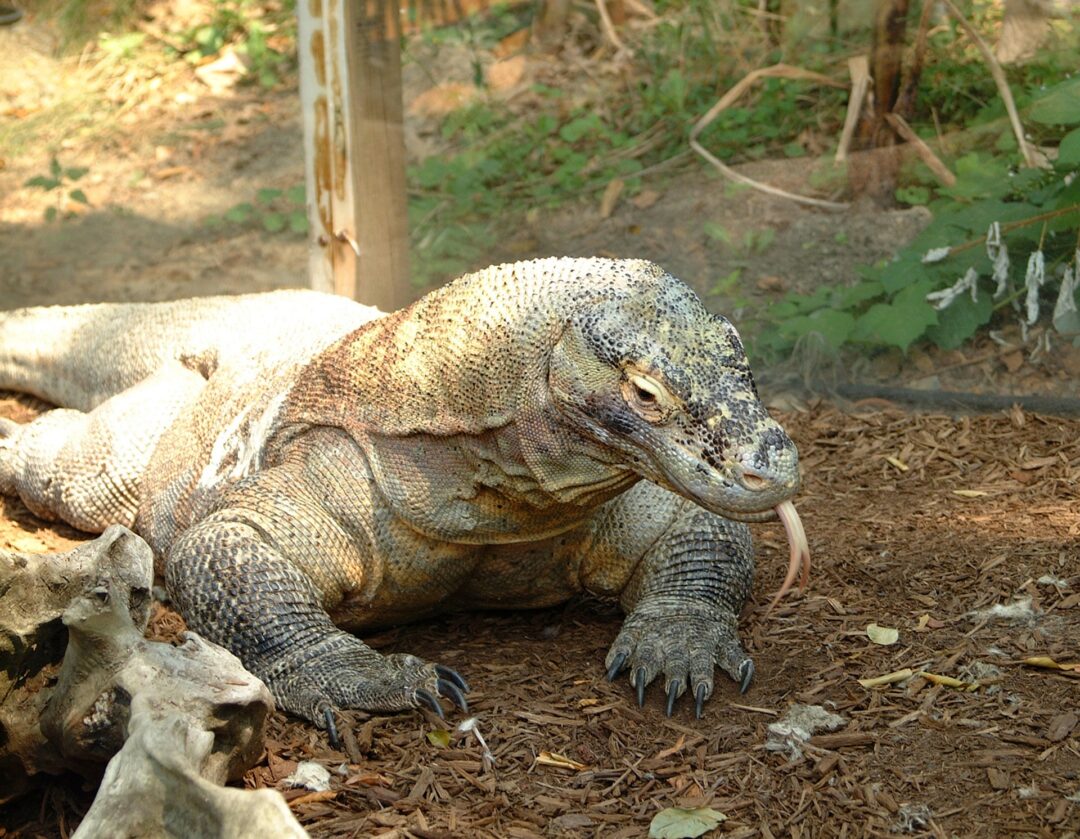Komodo dragons, known for their size and power, are considered one of the world’s largest lizards and can weigh up to 300 pounds.
Despite their impressive size and reputation, several animals can kill a Komodo dragon.
In this article, we will explore six of these animals and what makes them formidable opponents of the Komodo dragon.
Animals that Can Kill a Komodo Dragon
Crocodile
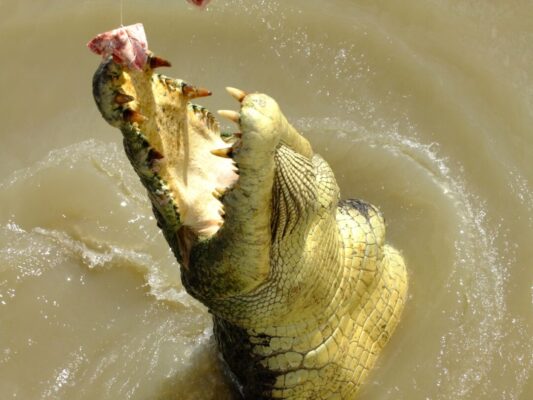
Crocodiles are one of the most dangerous animals on the planet and can kill a Komodo dragon with their powerful jaws and sharp teeth.
Crocodiles are well-adapted for hunting and can swim at high speeds, making it difficult for a Komodo dragon to escape.
In addition to their physical strength, crocodiles are also known for their intelligence and can outmaneuver their prey.
Tiger
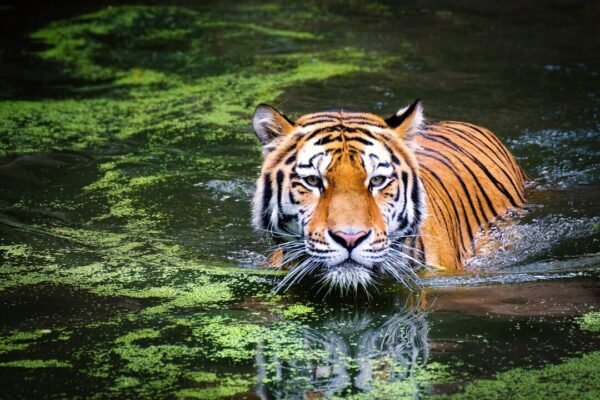
Tigers are some of the most feared predators in the world and are known for their strength and agility.
While tigers are not typically found in the same regions as Komodo dragons, they have been known to kill the lizards if they happen to cross paths.
A tiger’s ability to climb trees and swim in the water gives them an advantage over the Komodo dragon, primarily a ground-dwelling species.
Anaconda
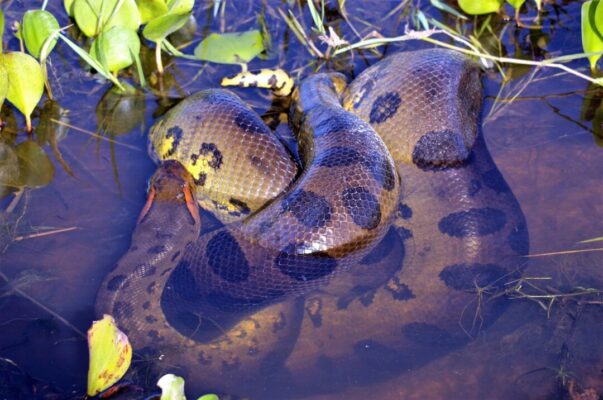
Anacondas are the largest snakes in the world and are known for their strength and constricting power.
While anacondas primarily feed on smaller prey, they have been known to kill and consume larger animals, including caimans, jaguars, and even deer.
Anacondas can wrap their powerful bodies around a Komodo dragon, cutting off its circulation and leading to death by suffocation.
Bear
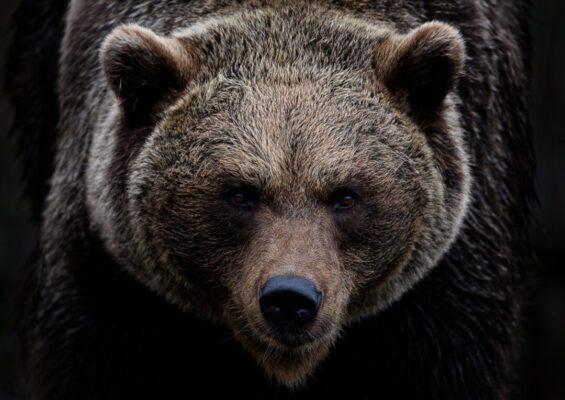
Bears are some of the strongest animals in the world, with some species weighing over 1,000 pounds.
While bears are typically omnivores, they have been known to kill large prey, including deer, elk, and moose.
If a bear and a Komodo dragon were to cross paths, the bear’s strength and sharp claws would give it an advantage over the lizard.
Hippopotamus
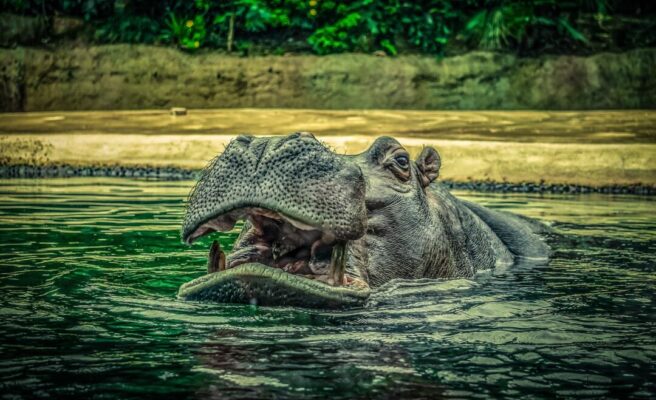
Hippopotamuses are known for their size and power, with some species weighing over 3,000 pounds.
Despite their reputation as herbivores, hippopotamuses are highly aggressive and considered one of Africa’s most dangerous animals.
Hippopotamuses have been known to kill crocodiles and other predators, including lions and hyenas.
If a hippopotamus were to encounter a Komodo dragon, its strength and powerful jaws would give it an advantage.
Wolverine
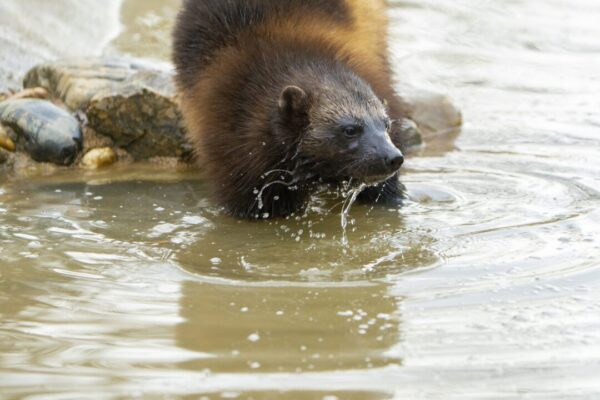
Wolverines are small but powerful carnivores known for their strength and ferocity.
While they are typically found in the northern hemisphere, they have been known to kill animals larger than themselves, including deer, elk, and even moose.
Wolverines have sharp claws and strong jaws, which they use to grip and kill their prey.
If a wolverine encountered a Komodo dragon, it would likely use its strength and agility to subdue the lizard.
Threats to the Komodo Dragon Population
Habitat Destruction
One of the biggest threats to the survival of the Komodo dragon is the destruction of their natural habitat.
As the human population grows in Indonesia, more and more land is being used for agriculture and other human activities, reducing the space for dragons to live and hunt.
It not only reduces their food sources but also puts them in closer proximity to humans, increasing the likelihood of human-dragon conflict.
Illegal Hunting
Despite being protected by law, Komodo dragons are still hunted by humans for their valuable skin, which is used to make leather goods, and their meat is considered a delicacy in some parts of the world.
This illegal hunting puts significant pressure on the already vulnerable population of dragons and exacerbates the decline in their numbers.
Diseases and Parasites
Komodo dragons are susceptible to diseases and parasites like any other species.
Some of these diseases are thought to be spread by other animals, such as pigs, that share their habitat.
Others may be spread through contact with contaminated water or food sources. In some cases, these diseases and parasites can significantly impact the dragons’ health and survival.
Conservation Efforts
Despite the threats to their survival, several organizations and individuals are working to protect the Komodo dragon population.
The Indonesian government has designated the Komodo National Park, which covers the islands where the dragons are found, as a protected area.
It helps to prevent further habitat destruction and provides a safe space for the dragons to live and hunt.
In addition, several organizations are working to increase public awareness about the importance of conserving the Komodo dragon population.
It includes educating the local communities about the importance of dragons for their ecosystem and the benefits of protecting them.
Conclusion
While Komodo dragons are powerful animals in their own right, there are several animals that can kill them.
From crocodiles and tigers to anacondas and bears, these animals have the physical strength and hunting skills to overpower a Komodo dragon.
So, next time you’re in awe of these lizards’ size and power, remember that several animals can give them a run for their money.
Also, Komodo dragons are a unique and magnificent species that play a critical role in their ecosystem.
However, they are facing several threats to their survival, including habitat destruction, illegal hunting, and diseases and parasites.
Conservation efforts are underway to protect the Komodo dragon population. Still, much more needs to be done to ensure that these fantastic creatures continue to thrive in the years to come.
Related Articles:

